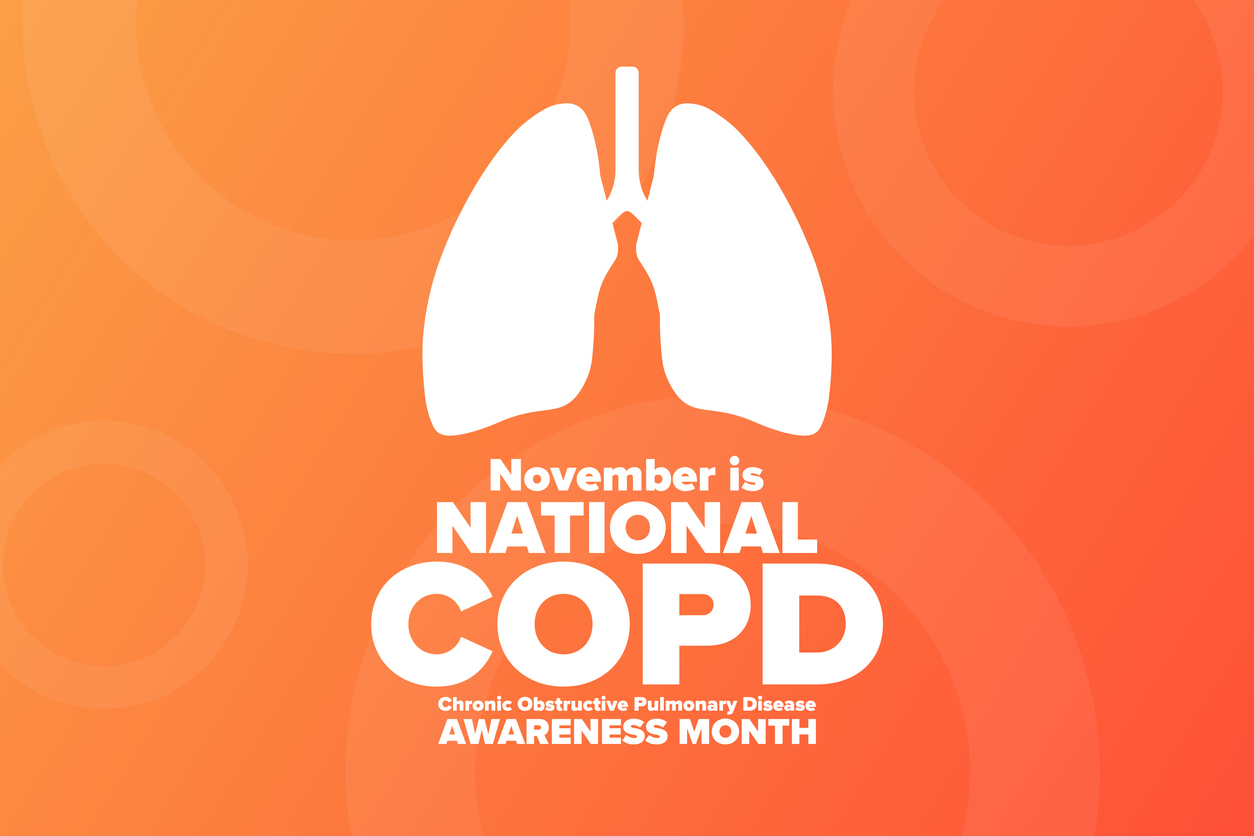COPD Awareness Month Spotlights SSDI Benefits

Chronic obstructive pulmonary disease, or COPD, affects more than 15 million adults in the U.S., plus many more who may not realize they have it. More than half of those diagnosed are women. According to the Centers for Disease Control and Prevention (CDC), COPD is a major cause of disability and the fourth-leading cause of death in the country.
November is National COPD Awareness Month and a time where the COPD community, family caregivers and healthcare providers work together to raise awareness and improve the lives of people living with COPD.
What Is COPD and Can It Be Prevented?
This condition is an umbrella term for emphysema and chronic or long-term bronchitis – both disrupting normal breathing and frequently making it impossible for the patient to work. While cigarette smoking is thought to be the primary cause of COPD, other causes include air pollution, occupational exposure and heredity, according to Johns Hopkins Medicine.
After someone is diagnosed with COPD, they may find that even with a comprehensive treatment program, including respiratory treatments, medication or exercises for physical conditioning and endurance, it is impossible for them to continue working or even manage daily life activities.
Social Security Disability Insurance – A Vital Lifeline
That’s when Social Security Disability Insurance (SSDI) can help with not only financial support but other key benefits, including Medicare, return-to-work assistance, and dependent benefits.
About 159 million U.S. workers are insured for SSDI as a result of paying FICA payroll taxes while they worked.
You are eligible to apply for SSDI if you meet Social Security’s definition of disability, with factors including:
- Be between 21 and your full retirement age.
- Have worked at least five out of the last 10 years and paid FICA taxes.
- Be unable to work in any capacity because of a mental or physical impairment expected to last at least 12 months or result in death.
- Be under the care of a healthcare professional who can confirm severity of medical condition(s).
“The Social Security Administration, which oversees the SSDI program, ranks COPD and respiratory illnesses third in its list of 14 impairments for disability insurance eligibility,” said T.J. Geist, Allsup principal advocate. “If you are dealing with COPD or any other serious condition or disability, our experts know what’s required to effectively build your case so that you receive the benefits you earned and deserve.”
Allsup has more than 38 years of experience helping people with disabilities receive SSDI benefits. From confirming eligibility and completing all necessary forms to gathering medical evidence on your behalf, you can trust us to tell your personal story of how your disability has influenced your life and ability to work.
Allsup helps individuals living with COPD and other respiratory conditions apply for SSDI and return to work.
Visit Allsup.com to learn more about filing a claim for SSDI benefits.
